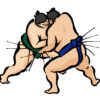What do “samui” and “sabui” mean? In English? さむい

Uwa-, samui!
(うわー、寒い!)
Yuki ga futteru. Douri de samui to omotta yo.
(雪が降ってる。どうりで寒いと思ったよ。)
For those who are learning Japanese, one of the basic words to learn is ”samui(さむい:寒い)."
(The word opposite to “samui" is “atsui")
“Samui" has a meaning that has been conventionally used and another meaning that seems to have come into common use recently.
Let’s take a closer look at the two “samui".
What do “samui" and “sabui" mean?
“Samui" is an adjective and its meaning is “cold".
This means that the temperature is low or that you feel “cold". It is used in the same sense as “cold" in English.
“Samui" refers to the sense of the speaker’s body. It can be confusing with “tsumetai", but “tsumetai" is used when the temperature outside the speaker is low.
“Samui(さむい、寒い)" is an adjective and its meaning is “cold".
This means that the temperature is low or that you feel “cold". It is used in the same sense as “cold" in English.
“Samui" refers to the sense of the speaker’s body. It can be confusing with “tsumetai(つめたい、冷たい)", but “tsumetai" is used when the temperature outside the speaker is low.
Feeling low temperature uncomfortable.
Feeling a need to warm the body up
Shivering with fear.
Being vain and lonely.
Insufficient money.
Poor content and content.
(In this case, “o" is added and used as “osamui(お寒い)")
The above is the traditional usage.
“Samui”, which is often used recently, means “not funny at all”. This spread nationwide since the comedians started using the word in TV programs.
It’s a metaphorical expression that the program was proceeding in a fun atmosphere up to when somebody made some remarks or jokes which were not funny at all and then the fun atmosphere turned around to be spoiled.
Then, someone will say “samui!"
It can be a rescue boat for the jokes. Pointing out “samui" for the atmosphere that seems to have become spoiled often can make the flow of the situation funny. (I hope you understand what I want to mean…)
Does “sabui" mean differently from “samui"?
“Sabui(さぶい、サブい)" has the same meaning as “samui".
“Sabui" is thought to be a change in the sound of “samui" in the old age, or a local dialect.
It is not uncommon for the pronunciation of “m" to change to “b".
Some people argue that “sabui" is a dialect of the Osaka region, but there are also cases where it is pronounced as “sabui" in the Kyushu region and around Tokyo.
Example sentences with “samui" and “sabui"
“Samui" and “sabui" are often pronounced shortly in conversations, change their endings, and are emphasized with “n" in words.
Samu(さむっ)
Samii-(さみー)
Sanmu-(さんむー)
Sabu(さぶっ)
The basic form is “samui".
Negative form: samukunai(寒くない)
Past tense: samukatta(寒かった)
Future system: samuidarou(寒いだろう)
Hypothetical form:
samukereba(寒ければ),
samukattara(寒かったら),
samui nara(寒いなら),
samui toki wa(寒いときは)
Polite expression:
samui desu(寒いです)
Polite question form:
samui desu ka?(寒いですか?)
Polite negative form:
samuku arimasen(寒くありません)
Polite past tense:
samukatta desu(寒かったです)
Polite future form:
samui deshou(寒いでしょう)
Kooto wo kinai to samui yo.
コートを着ないと寒いよ。
It’s cold without a coat.
Kesa wa totemo samui desu.
今朝はとても寒いです。
It is very cold this morning.
Zutto hitori de kokoro ga samui.
ずっと一人で心が寒い。
I’m lonely since I’m alone.
Kongetsu wa futokoro ga samui.
今月は懐が寒い。
This month, I am skint.
Yama no choujou wa totemo samukatta.
山の頂上はとても寒かった。
The top of the mountain was very cold.
Ashita wa motto samui darou.
明日はもっと寒いだろう。
It will be colder tomorrow.
Samukereba ie no naka ni haitte kudasai.
寒ければ家の中に入ってください。
If it is cold, please enter the house.
Samuinara uwagi wo kinasai.
寒いなら上着を着なさい。
Wear a jacket if it’s cold.
Samui toki wa moufu wo mou ichimai tsukatte ne.
寒いときは毛布をもう一枚使ってね。
Use another blanket when it’s cold.
Ohayou gozaimasu. Samui desu ne.
おはようございます。寒いですね。
Good morning. It is cold, isn’t it?
Samui desu ka? Sonnani samuku arimasen.
寒いですか?そんなに寒くありません。
Are you cold? No, it is not cold.
Soto wa kanari samukatta desu yo.
外はかなり寒かったですよ。
It was quite cold outside.
Nante osamui naiyou no repooto nanda.
なんてお寒い内容のレポートなんだ。
What a poor report.
Chichi no samui jouku ni sonoba no fun-iki ga shiraketa.
父の寒いジョークにその場の雰囲気がしらけた。
My father’s cold joke spoiled the atmosphere.
(Tsumaranai jouku ni taishi) Uwa-, samu.
(つまらないジョークに対し)うわー、寒っ。
(For boring jokes) God, it’s boring.
Samukute sesuji ga samuku natta.
怖くて背筋が寒くなった。
I was scared and felt a chill go down my spine.
Samukute furueta.
寒くて震えた。
It was cold and shivered.
There is the word “cool" which means “cool, stylish, smart, etc." in English and, in Japam, people started to use it as well, “kuulu(クール:cook)". The meaning is the same.
If someone makes a joke with the intention of sounding “cool," but, unfortunately, if it is actually not funny, the atmosphere there could get to be “samui (cold)" at once.
















